Crime
EFCC traces N7b to religious bodies, alleges faith leaders laundering funds for terrorists
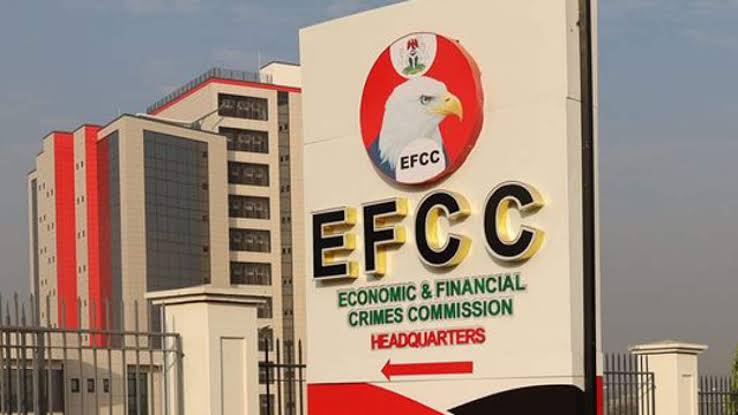
From Chairman of Economic and Financial Crimes Commission (EFCC), Ola Olukoyede, yesterday, came a revelation that the agency had traced N7 billion suspected to be proceeds of fraud to religious organisations.
Though he hid identities, Olukoyede pointed out that the organisations quickly obtained restraining orders, stopping the anti-graft agency from inviting their leaders for questioning and prosecution.
He pledged that the commission would not give up on investigation.His words: “A religious sect in this country had been found to be laundering money for terrorists.
“We were able to trace some laundered money to a religious organisation, and when we approached the religious organisation about it, and we were carrying out our investigation, we got a restraining order stopping us from carrying out our investigation.
“To our faith leaders, my appeal is that those, who lead our society from churches and mosques, should develop messages that glorify industry, hard work, probity and contentment over riches, irrespective of how it was made.
“We all must stand up and be counted in the efforts to reset the mentality of our youths that the fast lane to affluence is fraud.” According to the EFCC boss, with the launch of the fraud risk assessment project for Ministry, Departments and Agencies (MDAs), the agency would keep close tab on 20 extremely vulnerable agencies of government with the aim of drastically closing the space for brazen graft currently ongoing in the agencies.
READ ALSO: EFCC probes ex-minister Sirika Over Nigeria Air deal
In his keynote address, President Bola Tinubu, who lamented that Nigerians have been victims of misrepresentation over the years, canvassed a diverse and resilient nation.
Speaking through his deputy, Kashim Shittima, Tinubu disclosed that the current administration intends to protect the youths, considered heartbeat of the nation and drivers of the innovation the nation seeks to compete globally.
“Our nation comprises hardworking, honest citizens, who contribute significantly to various fields globally, from Artificial Intelligence (AI) to medicine.
“While we reject blanket stereotyping that undermines the majority upholding principles of integrity and diligence, we must face the fact that we function in an interconnected world, where cybercrimes have evolved into a global phenomenon. This poses a threat not only to our nation, but also to the entire world.”
READ ALSO: EFCC set to pick up Yahaya Bello as former Kogi governor’s immunity expires
Also speaking, Christian Association of Nigeria (CAN) President, Daniel Okoh, who argued that religion has always played a leadership role in shaping the moral fabric of the country, insisted that it provides a foundation for principles such as honesty, integrity and accountability.
He said: “When my generations of Christians were growing up, we were taught at Church through the scriptures that ‘Honesty is the Best Policy’, and a virtue that we must not only seek to have, but that it will bring pleasant rewards and ensure a good relationship in the society that enhances peaceful co-existence.
“We were taught that it was an abomination to steal or reap where one did not sow. As religious leaders, it is our responsibility to ensure that the youths understand the importance of these values, and how they can contribute to the fight against corruption.
READ ALSO: Police Arrest Suspect Wanted By EFCC In Rivers
“While we accept to give leadership in the battle, let us not forget to teach by example. Let us demonstrate very clearly always by our way of life that honesty is possible and rewarding. Moral education is key to empowering the youths with the right, timeless values to make ethical decisions and hold themselves and others accountable for their actions.”
The event had the theme: “Youth, Religion and the Fight Against Corruption” and featured launch of the Interfaith Preaching and Teaching Manual, developed by the Interfaith Anti-corruption Advisory Committee (IAAC) of the Commission, as a resource to promote abhorrence for corruption among adherents of the two religions: Islam and Christianity.
-
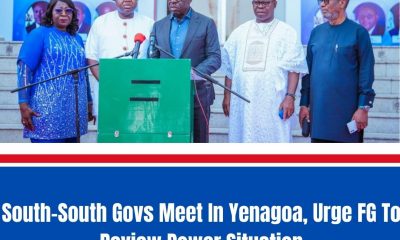
 Politics6 days ago
Politics6 days agoSouth-South Govs Meet In Yenagoa, Urge FG To Review Power Situation
-
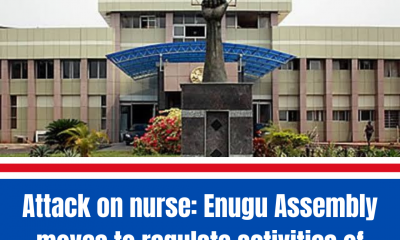
 News3 days ago
News3 days agoAttack on nurse: Enugu Assembly moves to regulate activities of masquerades
-
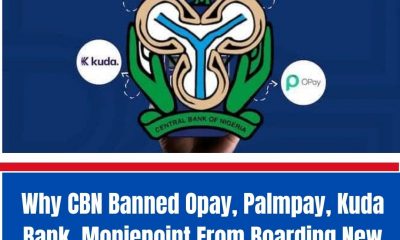
 Business6 days ago
Business6 days agoWhy CBN Banned Opay, Palmpay, Kuda Bank, Moniepoint From Boarding New Customers
-
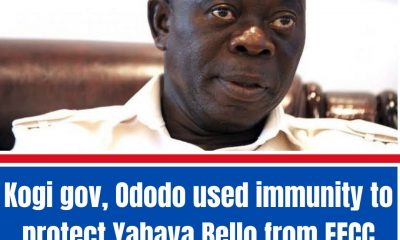
 Politics7 days ago
Politics7 days agoKogi gov, Ododo used immunity to protect Yahaya Bello from EFCC arrest – Oshiomhole
-

 Entertainment7 days ago
Entertainment7 days ago‘Disrespectful’ – Mr Macaroni slams Wizkid for shading Don Jazzy
-
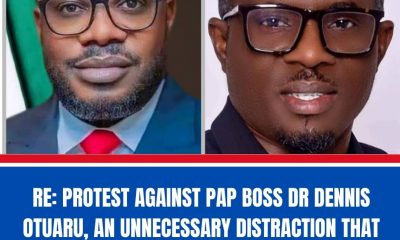
 Niger Delta6 days ago
Niger Delta6 days agoRE: PROTEST AGAINST PAP BOSS DR DENNIS OTUARU, AN UNNECESSARY DISTRACTION THAT SHOULD NOT BE TAKEN SERIOUSLY.
-
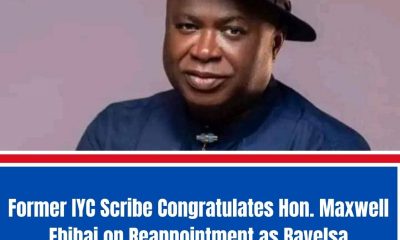
 Politics6 days ago
Politics6 days agoFormer IYC Scribe Congratulates Hon. Maxwell Ebibai on Reappointment as Bayelsa Commissioner for Finance.
-
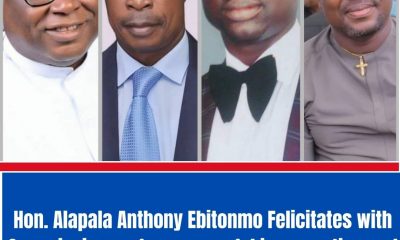
 Politics6 days ago
Politics6 days agoHon. Alapala Felicitates with Commissioners for successful inauguration and thank the governor for their appointments.




